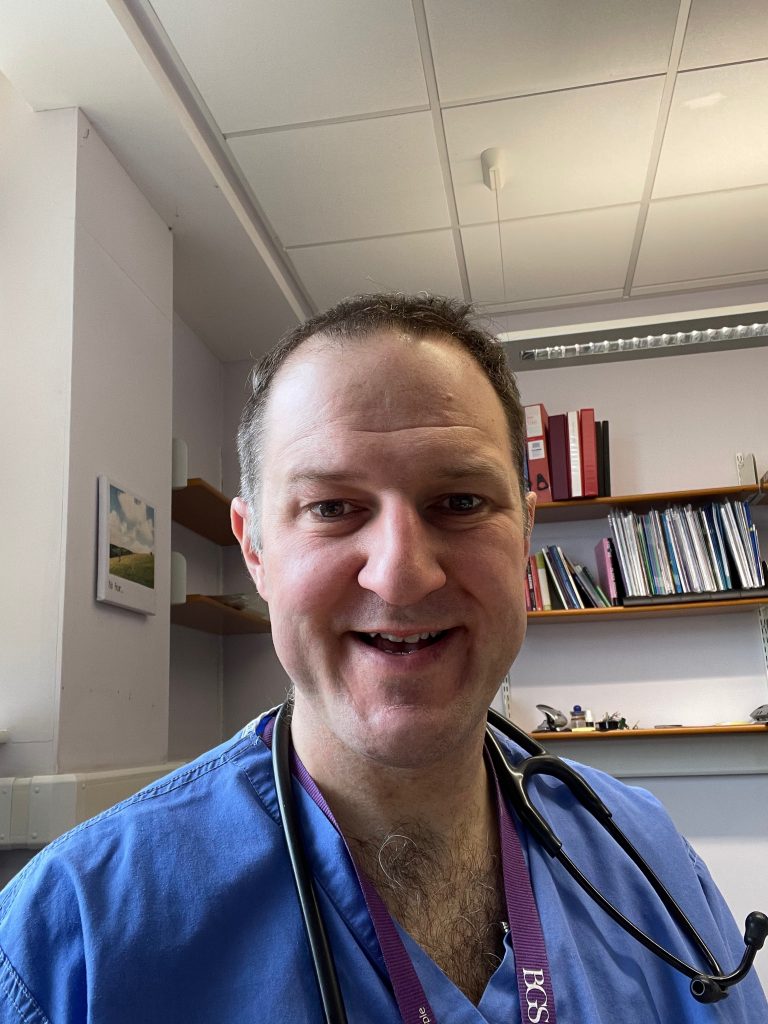January 6, 2022, by School of Medicine
50 at 50: As the School of Medicine reaches middle age, it’s time to think about ageing
 As the School of Medicine passes its 50th birthday, it’s apposite that our minds should turn to ageing. In 1970, when the School first opened, the average life expectancy at birth in the UK was 72 years of age. By 2020 it had reached 81 years.
As the School of Medicine passes its 50th birthday, it’s apposite that our minds should turn to ageing. In 1970, when the School first opened, the average life expectancy at birth in the UK was 72 years of age. By 2020 it had reached 81 years.
The increase in life expectancy is in no small way due to progress made with healthcare during the 50 years that the medical school has been in existence. Improvements in outcomes across the lifecourse extend from better antenatal and obstetric care, through decreased prevalence of common childhood illnesses associated with vaccination, to better primary and secondary prevention of life threatening illnesses in mid- and later-life.
As it has become less common to die peripartum, in childhood, or from acute illnesses like heart attacks or stroke in mid-life, so it has become more common for people to live to a ripe old age. Much of this would be regarded as “healthy ageing”, where people live for longer without disability or significant dependency. Older people are important contributors to society, playing important roles as social leaders, as well as volunteers and carers, after retirement.
The increase in the absolute number of people living longer has led, though, to an increased number of older people living with disability, dependency, dementia, multiple long-term conditions and frailty. All of these are projected to increase in prevalence from now until the middle of the century, and they’re changing the face of day-to-day clinical practice.
Age-related disability, frailty and multiple long-term conditions affect delivery of care in multiple ways. Patients tend not to present to health services with discrete illness episodes which are amenable to differential diagnosis and cure, but rather require ongoing healthcare support. They often have multiple health issues in parallel, which requires the input of multiple professionals. Their health issues more frequently affect day-to-day function, and so healthcare assessment must often extend beyond physical and mental health to include assessment of their ability to do day-to-day tasks, the social network they have access to for support, and the environment in which they need to live.
Systematic approaches to providing care for older people have been a focus of research at the University of Nottingham for much of the life of the School of Medicine. Nottingham researchers have helped develop comprehensive approaches to stroke care, community based rehabilitation, care for older people following operations and the structured delivery of healthcare in care in care homes.
Careful attention to how care is organised can improve outcomes for even those living with the most severe frailty. For example, a recent study from Professor Pip Logan and team illustrated that a structured approach to preventing falls in care homes that included awareness raising, education, screening and decision support, could reduce serious falls and the harms associated with them, without costing the NHS or care homes more money. The team are now working out how this type of intervention can be delivered nationally, to the 450,000 care home residents across the UK.
An important and complimentary strand of research, is work being undertaken at the University of Nottingham to better understand the mechanisms of ageing and whether targeted healthcare interventions can prevent the progression of frailty, and consequent disability and illness. This work, conducted through NIHR Nottingham Biomedical Research Centre, and the MRC Versus Arthritis Centre for Musculoskeletal Ageing Research includes using exciting new physiological and imaging measures to understand how muscle ages, how different clinical populations are affected by musculoskeletal ageing, and whether treatments can slow or reverse this process. Promising treatments might include a combination of dietary supplementation, exercise, neuromuscular electrical stimulation and drugs that either build muscle (anabolic) or target ageing processes (senolytics).
For the foreseeable future, doctors and healthcare professionals will need expertise in structured approaches to healthcare for older people with frailty. Research like that undertaken in Nottingham may also provide them with primary or secondary preventative interventions that can stop the march of age-related disability. If these interventions work, perhaps by time our School celebrates its 100th birthday some of the healthcare challenges raised by ageing at present will be things of the past.
By Professor Adam Gordon, Professor of the Care of Older People at the University of Nottingham and President Elect of the British Geriatrics Society.
No comments yet, fill out a comment to be the first

Leave a Reply